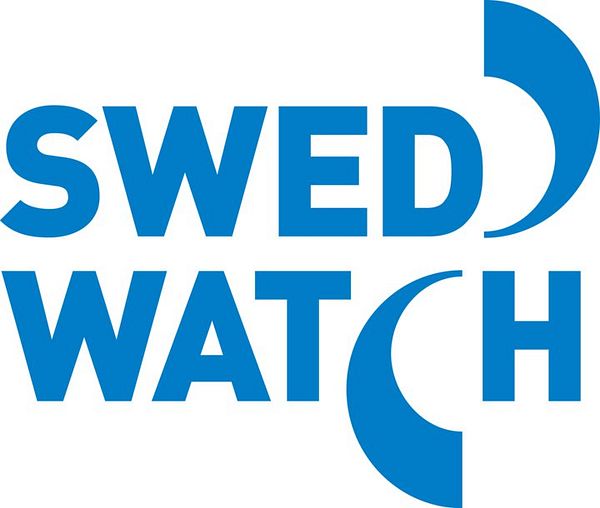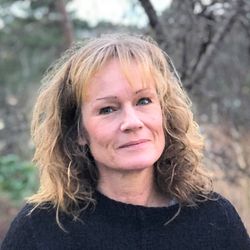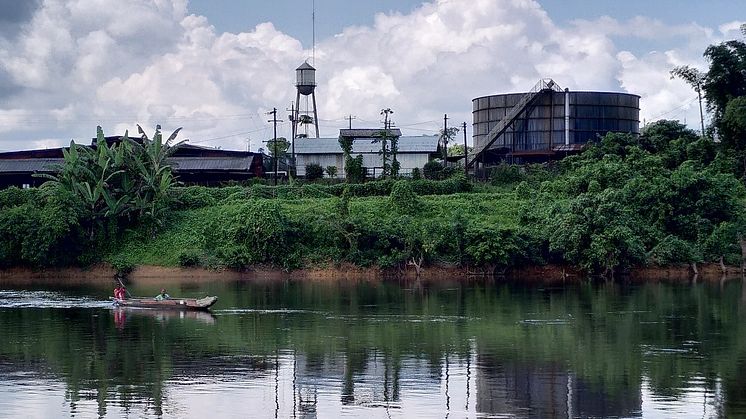Pressmeddelande -
New report on how companies impact the environment, women’s rights and social conflict in Liberia and Sierra Leone
Liberia and Sierra Leone have identified economic growth, sustainable management of natural resources and inclusion of women as central to peace and prosperity. Still, new research findings from Swedwatch, based on more than 400 interviews, show that business activities in land concession areas come with adverse impacts on human rights and the environment, contributing to conflict in already fragile settings.
- In Liberia and Sierra Leone, business activities in land concession areas have generated adverse social and environmental impacts like pollution and loss of livelihoods, particularly affecting women. According to the research, they have also contributed to increased social tensions and land conflicts, says Jessica Johansson, researcher at Swedwatch and author of the report Prerequisite for Peace – The critical role of responsible business conduct in conflict prevention in Liberia and Sierra Leone.
Swedwatch has for many years investigated the role of business in efforts to sustain peace in Liberia and Sierra Leone, and highlighted the need for thorough due diligence by companies operating in conflict-affected and high-risk areas. In both countries, land concessions and large-scale land acquisitions (LSLAs) - transfers of rights by states to business actors to use, own or control land – are identified as key to create economic growth, peace and prosperity, even though researchshows that LSLAs often result in negative social and environmental impacts.
To further review the impacts of LSLAs on the environment, women’s rights and conflict, Swedwatch in collaboration with local partner organisations Sierra Leone Network on the Right to Food (Silnorf)in Sierra Leone and Green Advocates International in Liberia conducted a 15-month research project including through community interviews by GAI and Silnorf with mainly women in land concession areas in both countries, resulting in the report. In Liberia, 111 out of 161 respondents were women and in Sierra Leone all 250 respondents were women.
From the interviews, it was clear that women were often excluded from consultation processes around land and natural resource management. As one woman in a land concession area in Sierra Leone, interviewed in April 2022, put it:
-When the company expressed their intentions to lease our land, we the women were not consulted and not involved in the discussions leading to the lease of our land. Only the chiefs negotiated for the land - without our consent.
The interviews also showed that conflicts and social tensions had increased in connection to land concessions and company activities. Furthermore, community members expressed concerns over water, air, and soil pollution and of drinking water being contaminated. Many had experienced adverse impacts on their health and wellbeing. As one woman in a land concession area in Liberia, interviewed in April 2022 described it:
-Whenever we go fishing in the river, we experience rashes and itching skin.
Women also spoke of gendered impacts that made them feel unsafe, including regular visitations by security guards in their communities, and having to travel longer distances to collect water.
Radiatu H.S. Kahnplaye, Head of Administration and Finance at Green Advocates International and Policy Advisor for the Natural Resources Women Platform in Liberia, confirms that women are often disproportionally impacted by land concessions and LSLAs.
- A central part of the government’s strategy for economic development has been to attract foreign investments, and the past 5-13 years we have witnessed an influx of international corporations into Libera, as well as to other countries in our region. The promise has been that the investments will take people’s life to another level, deliver jobs and a better day. But what we have seen so far is rather that it has added to existing problems and worsened the situation for local communities, especially women who depend on land and natural resources for their livelihood.
-The right to access to land will be realized when each and every woman and man alone or in the community with others, has the means physical, and economic to freely acquire land at all times, across the country, Says Abu Bakarr Munu, Communication Officer at Silnorf.
Conclusions
The report summarises three key takeaways on the business impact on the environment, women, and peace in land concession areas.
First, natural resource management, peace and human rights are interconnected and must be addressed in conjunction to achieve development goals and sustain peace in an increasingly fragile world.
Secondly, companies and investors can contribute to peacebuilding by engaging in responsible business conduct.
Thirdly, when companies operate in high-risk or conflict-affected settings withoutconsidering environmental, human rights and conflict impacts, women and other marginalised groups tend to bear a disproportionate cost. In the case of Liberia and Sierra Leone, this occurred in terms of loss of land, livelihoods, exclusion from community consultations with companies, and others.
-Failure to switch to more responsible business conduct risks reversing years of hard-won peacebuilding advancements. A development strategy that extracts the same natural resources that local communities depend on for their livelihood risks undermining the government's goals of gender equality and sustainable resource use - and in the end it can also jeopardize efforts to sustain peace, says Jessica Johansson.
Swedwatch recommendations
Businesses should carry out human rights due diligence alongside their environmental assessments, in line with the United Nations Guiding Principles on Business and Human Rights (UNGPs). In conflict-affected and high-risk settings, heightened due diligence should be carried out, as recommended by the UN Working Group on Business and Human Rights, rooted in a conflict-sensitivity analysis.
Companies should also be gender sensitive and include women in consultations and refrain from any business-related gender-based discrimination or reprisals. Governments and the EU Commission should adopt legislation on mandatory conflict-sensitive HRDD that includes accountability measures throughout company activities, value chains and investments.
-Lastly, it is key to include considerations on business, human rights, and the environment in global peacebuilding agendas. Companies are not neutral actors in high-risk areas, on the contrary, they affect conflict dynamics, says Jessica Johansson.
FACT BOX – ABOUT THE REPORT METHOD
The report summarises the key takeaways from a 15-month project carried out by Green Advocates International (GAI), Sierra Leone Network on the Right to Food (Silnorf), and Swedwatch in Liberia and Sierra Leone. The project included research on the vulnerabilities that undermine sustainable peace and the role of LSLAs (large-scale land acquisitions) in social tension in Liberia and Sierra Leone.
More than 400 interviews were carried out in March and April 2022 in the form of semi-structured interviews - using a survey as the basis and including open-ended questions. These interviews were carried out in 24 communities in Sierra Leone, across six districts in Bo, Bombali, Kono, Port Loko, Pujehun, and Tonkolili. In Liberia, data collection was carried out in the counties Grand Cape Mount, Bomi, Margibi and Grand Bassa, targeting 16 communities. The LSLAs are in various sectors, including agriculture, mining, rubber, forestry, and palm oil.
The insights in the report have also been informed by accounts from trainings for women in communities affected by land concessions. For these trainings, a technical toolkit for CSOs and one cartoon-based toolkit for local communities, in the local language Pidgin English (Liberia) and Krio (Sierra Leone), were developed to increase knowledge on the rights to land, natural resources and women’ rights.
Ämnen
Kategorier
Swedwatch är en ideell och politiskt obunden researchorganisation. Vårt mål är att företag, investerare och stater ska ta ansvar för mänskliga rättigheter och miljö och att rättighetsinnehavare kan göra sina röster hörda.


